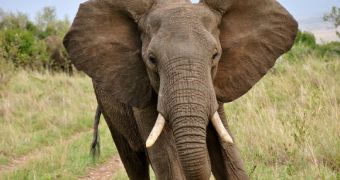During a press conference that took place only yesterday, the Director of the Malaysian Customs, Dato’ Azis Yacub, made it public news that the country's authorities succeeded in confiscating as many as 1,500 elephant tusks.
The tusks were all hidden in wooden crates made to look like stacks of sawn timber, and their final destination was China.
What is interesting is the fact that, prior to their being discovered and confiscated in Malaysia, these elephant tusks had successfully transited the Spanish port of Algeciras, where they failed to get the attention of local authorities.
According to the World Wildlife Fund, a Malaysian company is now being investigated with respect to this illegal cargo.
Should it be found guilty of being involved in trafficking this ivory, it faces both major fines and having some of its employees locked up for up to five years.
Apparently, Malaysia grew significantly interested in putting an end to the illegal ivory trade after being singled out during a meeting of CITES (the Convention on International Trade in Endangered Species of Wild Fauna and Flora) and showed to be quite lenient as far as monitoring and ending such illegal shipments were concerned.
Hoping to make amends for its past behavior, Malaysia is now asking that whoever knows anything about such illegal activities step forth and let the authorities know as well.
“Azis called on the public to continue providing the department with information that would help it stop more shipments like these. He assured that informants identities would be kept confidential and a financial reward would be paid if the information led to a successful case,” reads the official website for the World Wildlife Fund.
The size of this elephant tusks shipment makes it the largest such capture made in Malaysia thus far.
“TRAFFIC commends the customs department on its vigilance and hopes to see it pursue all leads towards finding the criminals that are using Malaysia as a transit point for ivory,” commented on this seizure Dr. William Schaedla, TRAFFIC’s [Trade Records Analysis of Flora and Fauna in Commerce] director in South-East Asia.

 14 DAY TRIAL //
14 DAY TRIAL //